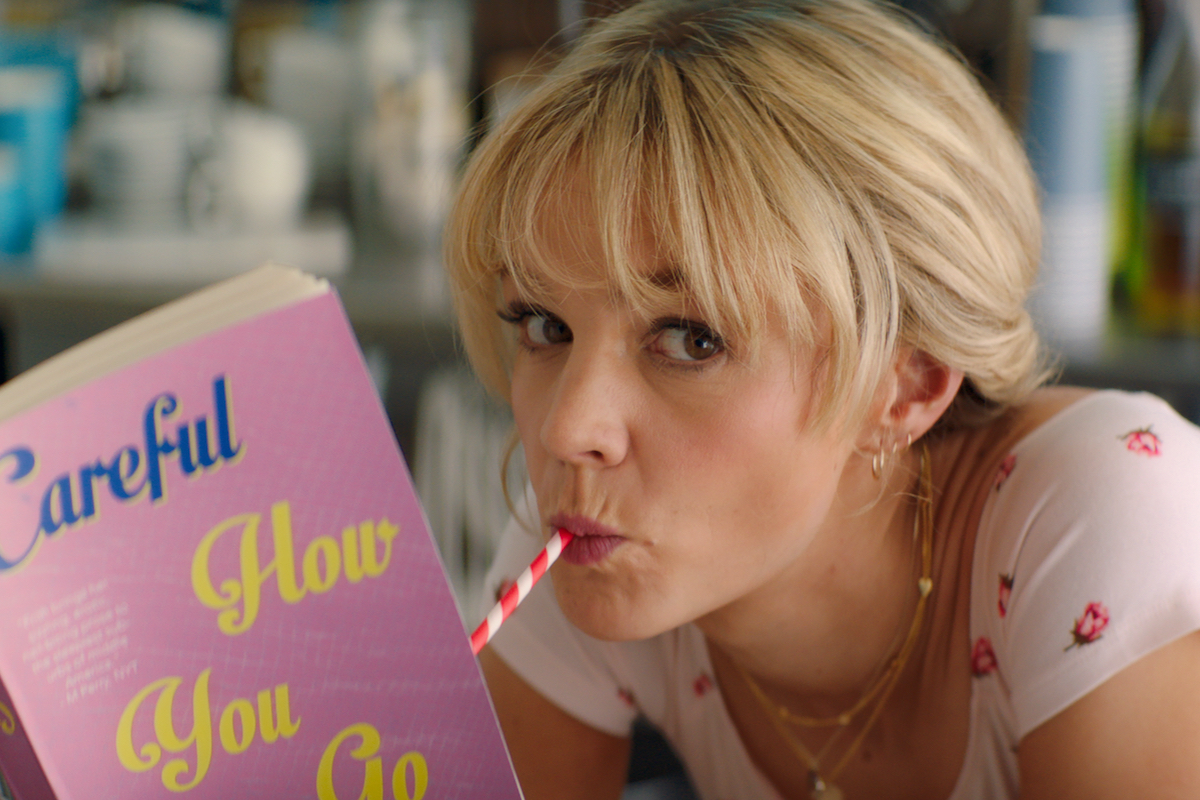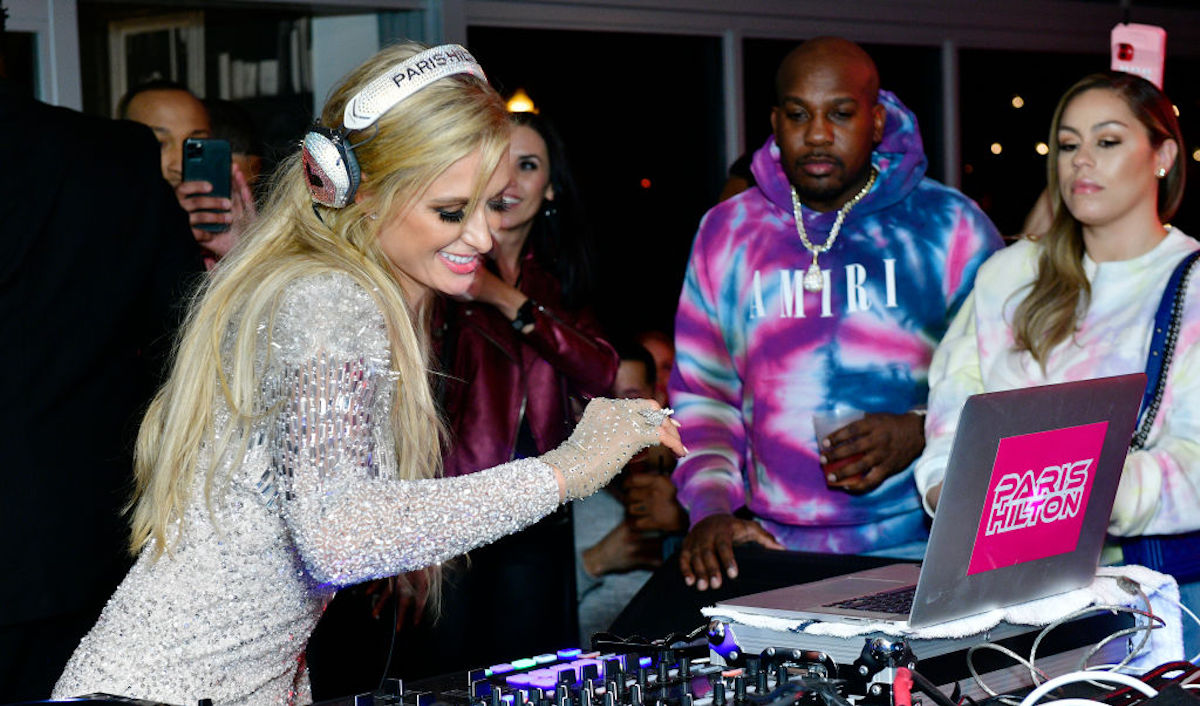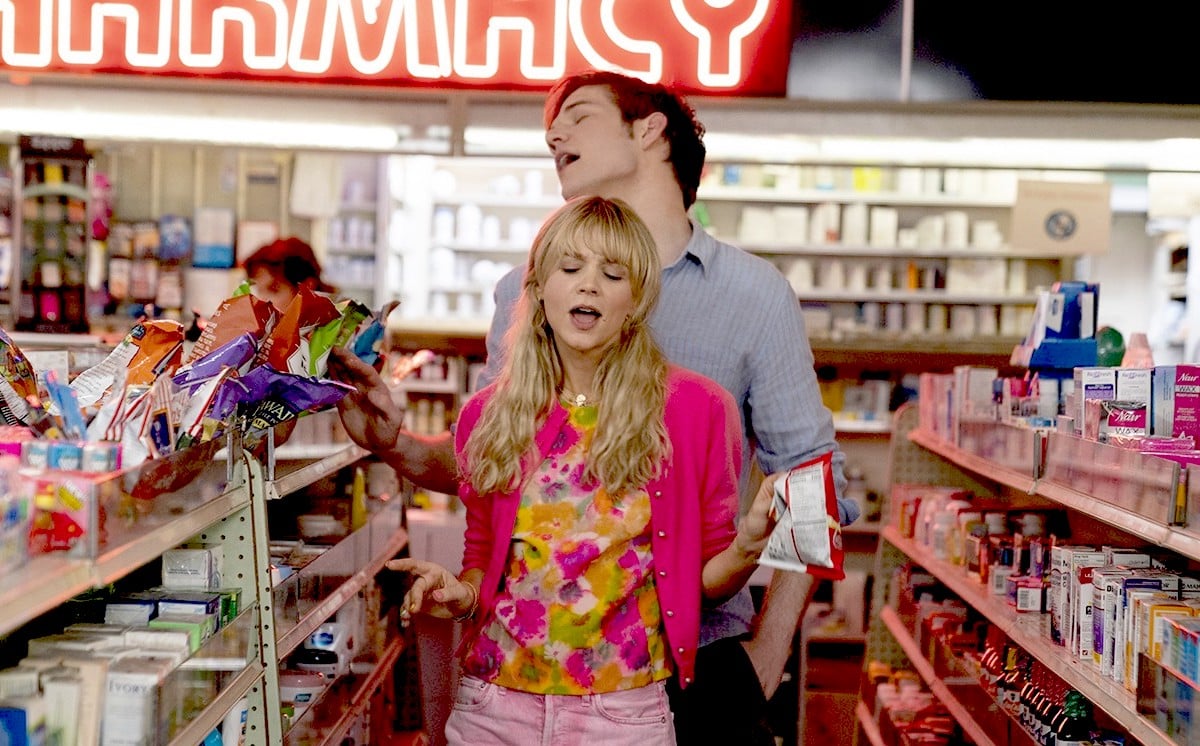On September 6, 2001, Britney Spears performed “I’m a Slave 4 U” at the MTV Music Video Awards while holding a gigantic albino Burmese python. It was a pop culture Moment—our girl-next-door-blonde-goddess, who was 19 at the time, dancing with a deadly snake. This was the perfect metaphor for how the early millennium felt for young women: look sexy, dance with deadly forces. But when you protest, expect people to be confused.
Six years later, Spears shaved her head during a nervous breakdown in the public eye and ended up being placed under a 5150 hold in a psychiatric hospital. To this day, Spears is under a conservatorship and has no control over her finances, medical care, or personal decisions.
Framing Britney Spears (2021), a documentary about Spears’ conservatorship struggles, was released last Friday, drawing attention to how we all pushed Spears over the edge. This film comes on the heels of another documentary about another young woman humiliated by the media in the early aughts—Paris Hilton.
This is Paris (2020) gives Hilton the opportunity to talk about how she was abused at boarding school and by men in her life. With the release of these two documentaries in close proximity to one another, it’s finally time to critically examine what was happening to young women during the early 2000s.
That’s where Promising Young Woman (2021) enters the picture. Emerald Fennel’s Golden Globe-nominated film about a traumatized woman unable to move past her friend’s rape and suicide doesn’t specifically name Britney Spears or Paris Hilton, but these two women exist in the movie’s margins and inform its aesthetics, soundtrack, and rape-culture narrative. An environment in which sexual violence against women is normalized and excused in media and popular culture, rape culture is inextricably linked to the egregious treatment of Spears, Hilton, and the characters of Promising Young Woman.
Behaviors associated with rape culture include slut-shaming, victim blaming, objectifying women’s bodies, sexual harassment, intimidation, coercion, using misogynistic language, denying rape happens, and committing sexual violence. In the early aughts, the concept of rape culture was not yet popularly acknowledged, and the language of shame and blame proliferated whenever a woman was perceived as doing something “untoward.”
When Spears was photographed getting out of her car not wearing underwear, major media outlets like ABC and NBC treated it like a newsworthy event and not a complete violation of her privacy, saying she was doing it “for attention.” When Diane Sawyer publicly shamed Spears in 2003 for the demise of her relationship with Justin Timberlake and basically said it was understandable that an elected official’s wife wanted to shoot Spears, people didn’t react with outrage at Sawyer—they expected Spears’ penitence.

(VALERIE MACON/AFP via Getty Images)
When Hilton’s sex tape was distributed by her ex-boyfriend without her consent, she was slut-shamed and mocked for years in print journalism, her exploitation ignored in favor of the narrative that she wanted to get famous.
Promising Young Woman asks us to interrogate how rape culture destroys lives and silences women. In the film, Cassie is haunted by the rape and subsequent suicide of her best friend, Nina.
Nina, who was intoxicated at a party when she was raped, was treated abysmally by all the people in power who were supposed to help her. Without recourse, she ended her life. Cassie, powered by rage, toils at a coffee shop by day so she can dedicate herself to acts of sexual vigilantism at night. Her targets are “nice guys”—men you might think would help you home after a night out but would instead shove their fingers into your incapacitated body.
Not solely a rape revenge film in the tradition of classics like Last House on the Left, Promising Young Woman is also an elegy for a lost moment in time, a lost friend, and lost potential. It is a story about what happens when traumatized women are ignored and victimizers are allowed to live their lives free of consequence. Nina’s rapist, now a successful anesthesiologist—clever, right? He now gets paid to render people unconscious—is about to marry an underwear model he genuinely seems to care for. This, along with the discovery that Nina’s rape was recorded on video, pushes Cassie towards one last confrontation.

Because of the trauma of Nina’s rape and suicide, Cassie is unable to move on with her life, even with the blessing of Nina’s mother. Cassie lives at home with her parents (her perpetually disappointed mother is played by Jennifer Coolidge, linking Promising Young Woman to popular early millennial movies such as 2001’s Legally Blonde and 1999’s American Pie) and dresses like she is trapped in 2004, favoring whimsical floral dresses, rainbow manicures, and fuzzy pink sweaters. Her thick blonde hair is styled in romantic waves or secured with ribbon, like Alice in Wonderland. The pastels and pink feel unsettling on a person who so darkly inhabits the world—Bambi as apex predator.
“It was important for Cassie to seem innocuous and sweet and feminine and tactile and inviting,” Fennel explained. “It needs to be a world that you want to step into. It needs to be a world that feels familiar and safe and feminine until it isn’t. That sort of uncanny is something that I’m just obsessed with in general, and particularly the kind of feminine uncanny. This idea that just because you love Britney Spears doesn’t mean you couldn’t cut someone’s face off.”
Aside from Cassie’s wardrobe, the film’s soundtrack evokes the early 2000s and emphasizes the role pop stars play in its larger vision. With two very significant songs— Paris Hilton’s “Stars are Blind” and Britney Spears’ “Toxic”—the movie centers female romantic and sexual experience, showing us the innocence of the honeymoon period and the trauma after rape.
Hilton’s 2006 song “Stars Are Blind” is featured during one of the sweetest moments in the film—when Cassie and her new boyfriend take their first trip to the pharmacy as a couple and dance in the aisle, singing every word. The aim of that specific scene, production designer Michael Perry said, was to show what Cassie was like before Nina’s death and what her future could look like if she could move on. “I wanted it to be, as much as possible, a Paris Hilton video,” Perry said.

(Eugene Gologursky/Getty Images for MCM)
Paris Hilton is now a professional DJ with lots of music videos under her belt (who has also been caught on video using racial and homophobic slurs, and none of this is to excuse that), but she is still unfortunately remembered for one particular video: 1 Night in Paris. The sex tape, which was made with boyfriend Rick Salomon in 2000, was released without Hilton’s consent. Then, in 2005, Salomon collaborated with pornography production company Red Light District in the creation of 1 Night in Paris—the “official cut” of the original film footage complete with commentary from Salomon himself.
Hilton, however, says she was not aware of the film’s original internet distribution, nor did she have any say in the decisions made regarding the release and promotion of the film. In a 2006 interview, Paris maintained, “I never received a dime from (the video). It’s just dirty money and (Salomon) should give it all to some charity for the sexually abused or something.”
In This Is Paris, Hilton connects the sex tape to the trauma she experienced at boarding school: “I would never have let anyone into my life like [Salomon, whom she was dating at the time],” she explains. “I met the worst person I could meet and if I hadn’t gone to [boarding school], I wouldn’t have entertained the thought of letting him into my life.” Hilton also confesses that she has seen her share of intimate partner violence, saying that at least five boyfriends have physically injured her.
At the end of Promising Young Woman, Cassie goes to face Nina’s rapist at his bachelor party. Britney Spears’ hit “Toxic,” reimagined as a dirge, plays while Cassie heads to the cabin in the woods where she will confront a crowd of aging, intoxicated frat boys and the man who raped her best friend. Rendered in discordant and unnerving strings, the upbeat song becomes a disturbing death march, reminding us of Spears’ dualities as a woman and artist.
In a recent interview, Fennell summed up what men think of women like Cassie: “Somebody just decided a while ago, probably a man, what was deserving of our respect and interest and time, and the things that weren’t, were clothes and pink and hair and manicures and Britney Spears.” Like her namesake, Cassandra, Cassie has been trying to make us see what we’ve done, how we’ve taken an entire generation of promising young women and thrown them in the trash—or in Cassie’s case, the ash heap.
These women were victimized—Hilton by the release of a sex tape without her consent and Spears by an industry that demanded she hyper-sexualize herself until she developed psychological problems and lost control of her life. Nina was raped and denied justice. Cassie is murdered, immolated in the name of justice. We’re finally grappling with the fallout of living in a rape culture in a more meaningful way, but Promising Young Woman insists that we still have a long way to go—even if #FreeBritney is trending on Twitter again.
(featured image: Merie Weismiller Wallace/Focus Features)
**Editor’s note: This piece has been updated to include Paris Hilton’s history of racist and homophobic language.**
Want more stories like this? Become a subscriber and support the site!
—The Mary Sue has a strict comment policy that forbids, but is not limited to, personal insults toward anyone, hate speech, and trolling.—









Published: Feb 10, 2021 03:02 pm